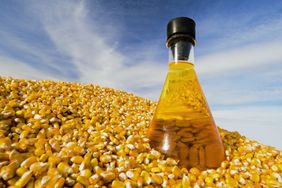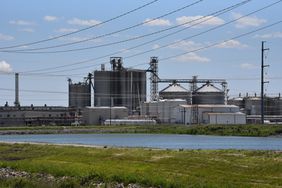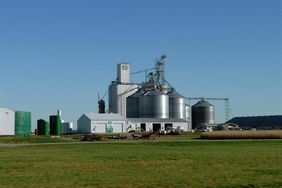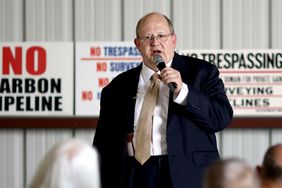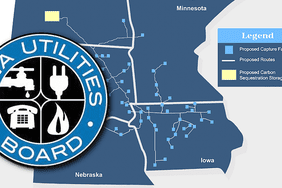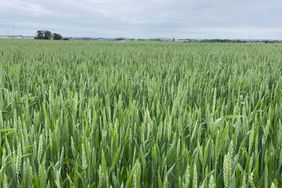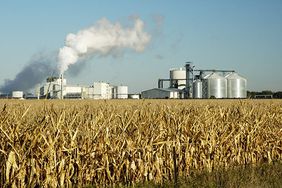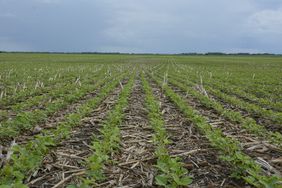:max_bytes(150000):strip_icc()/ethanol20plant20by20corn20field2032065097317_994e6d7a39_c-173d59ed11d348f2ad2885e7adfe2692.jpg)
WASHINGTON, April 5 (Reuters) - The Biden administration will release a preliminary climate model for its sustainable aviation fuel (SAF) subsidy program in the coming weeks that is more restrictive than the corn-based ethanol producers had hoped, two sources familiar with the matter told Reuters.
Under the preliminary model, which could be released by May 15, ethanol is not expected to automatically qualify as a feedstock in the SAF subsidy program unless the corn involved is sourced from farmers using one of just three sustainable agriculture techniques, the sources said.
Those techniques include efficient tilling, use of cover crops, and efficient fertilizer application, the sources said.
The ethanol industry had expected a broader range of agriculture techniques to be included in the model to help the fuel qualify.
The sources said the model could be expanded to include a broader range of options when the administration issues its final rule later in the year.
The Biden administration wants SAF to play a key role in decarbonizing the transportation sector, and included a $1.25 per gallon tax credit for its production in the 2022 Inflation Reduction Act.
But to secure that subsidy, SAF producers must demonstrate their fuel is 50% lower in emissions than jet fuel.
Ethanol producers see the nascent SAF industry and its subsidies as the corn-based fuel's top chance for market growth, amid stagnant demand for gasoline.
(Reporting by Jarrett Renshaw; Writing by Richard Valdmanis; Editing by Marguerita Choy)
